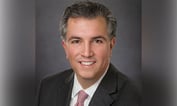The Tax Court recently handed down a decision that could prove to be just the break that trusts participating in business activities need to escape liability for the new 3.8% tax on investment-type income. Now that the tax filing deadline for 2013 is behind us, many trusts with business-related income are finally feeling the sting of the tax, which applied to all trust investment income for trusts with income in excess of a low $11,950 in 2013 ($12,150 for 2014). The decision paves the way for new planning techniques in 2014 and beyond, highlighting the importance of a trust’s operating structure in shielding income from the additional tax—and in gaining valuable loss deductions along the way.
Aragona Trust: Facts of the Case
The issue in the Aragona case was whether a trust entity could be found to materially participate in real estate activities so as to quality for an exception to the general rule that rental real estate is a per se passive activity. Importantly, rejecting the IRS’s argument to the contrary, the court found that for purposes of the material participation rules, a trust was capable of performing “personal services” and could, therefore, quality for the exception.
The original trustee in this case formed a grantor trust that was engaged in substantial rental real estate business activities, naming his five children as beneficiaries. When he passed away, the five children and one independent individual became trustees. Three of the children worked full-time in the trust’s real estate businesses through an LLC that was wholly owned by the trust, earning wages in addition to fees for serving as trustees. Two children had very little involvement in the business.
The trust incurred substantial losses, which the IRS sought to disallow as passive losses that could only be used to offset other passive income. The trust, on the other hand, argued that it qualified for an exception to the passive activity rules that applies if (1) more than one-half of the personal services performed in trades or businesses by the taxpayer during the year is performed in real property businesses in which the taxpayer materially participates and (2) the taxpayer performs more than 750 hours of services during the year for the trade or business.
Rejecting the IRS’s argument that a trust was incapable of providing personal services, the court found that the trust here qualified for the exception because the individual trustees worked in the business as part of their duties as trustees. This was the case even though the three trustees who materially participated in the business were also employees of the trust (in that they received wages in exchange for services performed for the wholly-owned LLC).
Because the employee-trustees continued to owe a duty of loyalty to the trust in their capacity as trust fiduciaries even when technically acting as trust employees, activities performed as employees could not be separated from their duties as trustees.
Significance in the Face of the Investment Income Tax








 April 22, 2014 at 09:03 PM
April 22, 2014 at 09:03 PM










